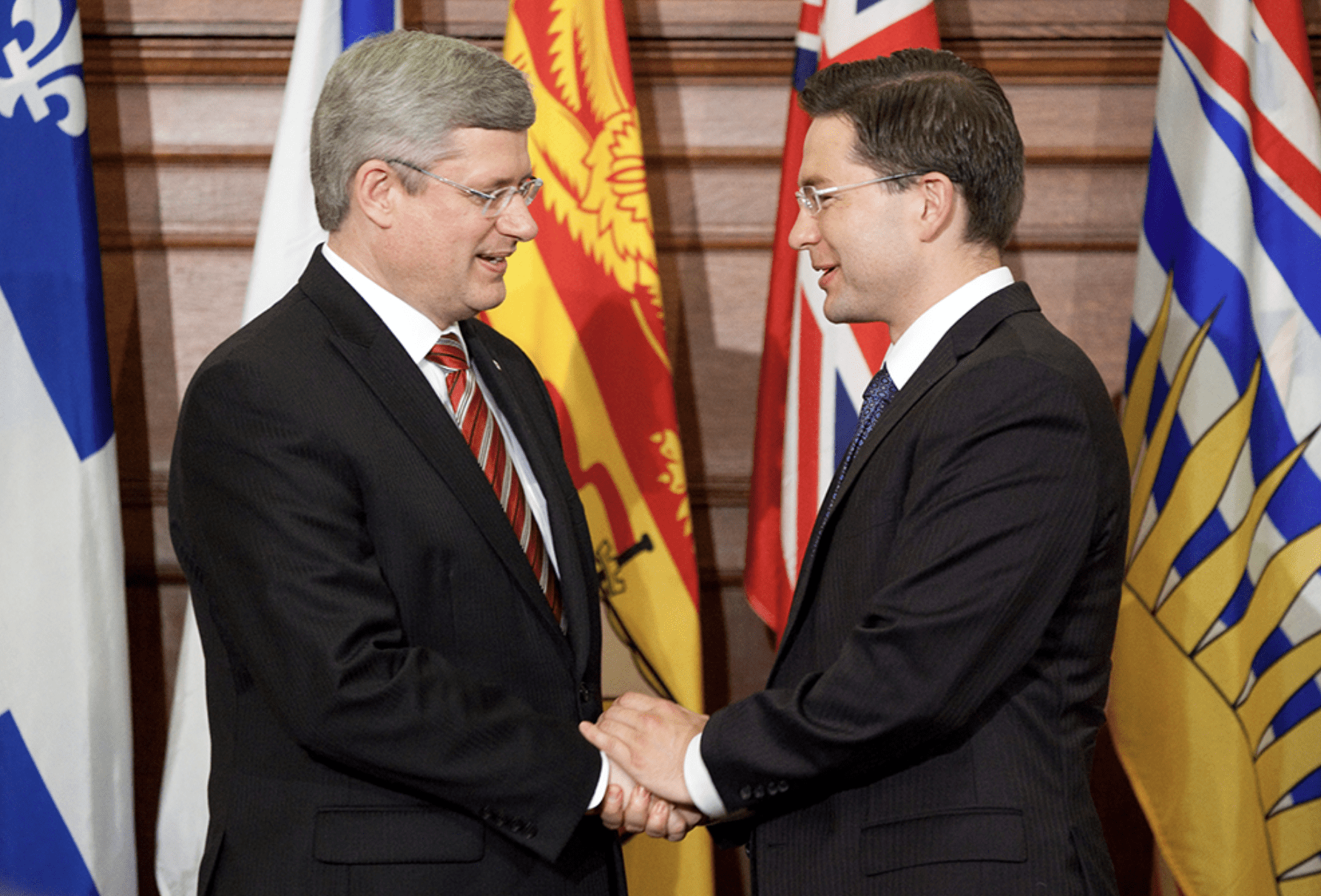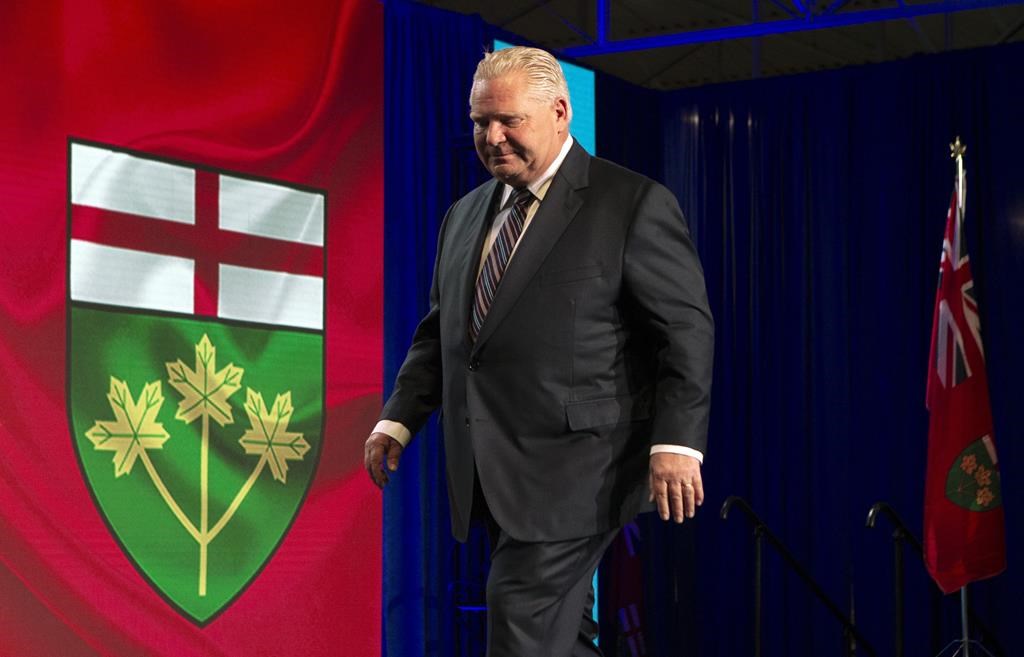This content is restricted to subscribers

The views, opinions and positions expressed by columnists and contributors are the author’s alone. They do not inherently or expressly reflect the views, opinions and/or positions of our publication.

This content is restricted to subscribers
The views, opinions and positions expressed by columnists and contributors are the author’s alone. They do not inherently or expressly reflect the views, opinions and/or positions of our publication.

Become a subscriber today!
Register
Become a subscriber today!
Register
Former Prime Minister Stephen Harper recently proposed an interesting political strategy for current Conservative Party leader Pierre Poilievre. His advice was to not only hold Prime Minister Justin Trudeau and the Liberals to account, but let them lead the country and its policy discussions.
In other words, do the opposite of what modern politics has largely become.
“Our country is badly in need of a Conservative renaissance at the national level,” Harper pointed out at the Canada Strong and Free Network conference in Ottawa on Mar. 22. His main priority was to identify the best route for Conservative leaders like Poilievre to achieve this important goal. At the same time, they need to ensure that Liberals and other progressives don’t push the political narrative in a direction that will ultimately hurt the Conservative party and movement.
“I worry that that’s what the liberal media here wants Pierre Poilievre to do – make himself the issue,” he said during his fireside chat with former Reform Party leader Preston Manning. “The time to tell people about your alternatives in detail is in an election campaign,” he continued. “I can tell you from experience that once you get into office, you better have some idea of what you are going to do because it ain’t going to fall into your lap.”
Harper, according to the Globe and Mail’s Ian Bailey, also reportedly said to the audience at the annual conference that he tells Conservative opposition leaders they “should not be saying how they would run the country, but rather be making the government wear its mismanagement, corruption and incompetence.”
In the former PM’s words, “That’s the job.”
Some believe Harper’s advice for Poilievre flies in the face of what he accomplished in the shift from Leader of the Opposition between 2002-2005 to Prime Minister in 2006.
Here’s an example. Toronto Star columnist Susan Delacourt wrote on April 1 that Harper “seems to have developed a case of amnesia about how the Conservatives rode to power in 2006 on the strength of five big priorities, which they hammered home with incredible message discipline and clever marketing in the 2005-06 election campaign.” Moreover, he “has also forgotten…that he came into office as one of the most media-friendly politicians of his era. He was a regular on TV political panels. He frequently held long, answer-filled scrums as Opposition leader. He spoke often to journalists like me, on and off the record. It was only after he became prime minister that he became overtly hostile to the media – an approach that Poilievre has clearly adopted in opposition.”
Poilievre may want to take this advice “with a grain of salt,” in Delacourt’s view. “Elder statesmen of parties aren’t always the best strategists.”
That’s true in some instances, but not all. Harper, unlike most elder party statesmen, has always maintained a razor-sharp focus when it comes to policy, ideology, strategy and communications. You may not like what my old friend and boss proposes, but you would be unwise to ignore or disregard him – or simply take it with a grain of salt.
What’s my view?
I believe Harper is right as a rule of thumb for Conservative leaders and parties in opposition. If there’s a centrist or left-leaning government in power, the goal is to hold them to account with respect to policies, statements, speeches, ideas and the day-to-day operation of politics. Meanwhile, the same centrist or left-leaning government must always lead policy discussion and political debate, not the Conservative opposition.
The reverse is also true for centrist and left-leaning parties if a Conservative government is in power. That’s the way politics works, by and large.
I have no issue with Poilievre introducing small doses of policy from time to time. It’s all in the way you do it. The videos that he’s put out as an MP, cabinet minister, opposition critic and party leader have been crafted in this particular fashion. Look at them more closely. While there have been some light policy details, it’s mostly been a mix of history, language, imagery, buzz words, and how the Conservatives would do things differently from the Liberals.
Poilievre may be expressing his basic political vision a little more than Harper would have been comfortable with. The meat of the matter will seemingly remain under wraps until the next federal election. There’s also no doubt the liberal media would prefer that Poilievre led the way on policy to deflect attention from Trudeau, their preferred candidate and choice for PM. He won’t do this, of course – and the press corps won’t be able to change his mind.
It goes without saying that Poilievre has been a different type of Conservative leader than Harper. This isn’t surprising; all successful political leaders need to establish a unique political identity, footprint and leadership style to earn and maintain caucus support. At the same time, their basic models of leadership, policy development, strategic communications and means of achieving electoral success are quite similar.
When you put it all together, Poilievre has basically been doing what Harper suggested he should do. So far, so good.
Michael Taube, a long-time newspaper columnist and political commentator, was a speechwriter for former Canadian prime minister Stephen Harper.
The views, opinions and positions expressed by columnists and contributors are the author’s alone. They do not inherently or expressly reflect the views, opinions and/or positions of our publication.

This content is restricted to subscribers
The views, opinions and positions expressed by columnists and contributors are the author’s alone. They do not inherently or expressly reflect the views, opinions and/or positions of our publication.

Become a subscriber today!
Register
This content is restricted to subscribers
The views, opinions and positions expressed by columnists and contributors are the author’s alone. They do not inherently or expressly reflect the views, opinions and/or positions of our publication.

This content is restricted to subscribers
The views, opinions and positions expressed by columnists and contributors are the author’s alone. They do not inherently or expressly reflect the views, opinions and/or positions of our publication.

Become a subscriber today!
Register
Become a subscriber today!
Register